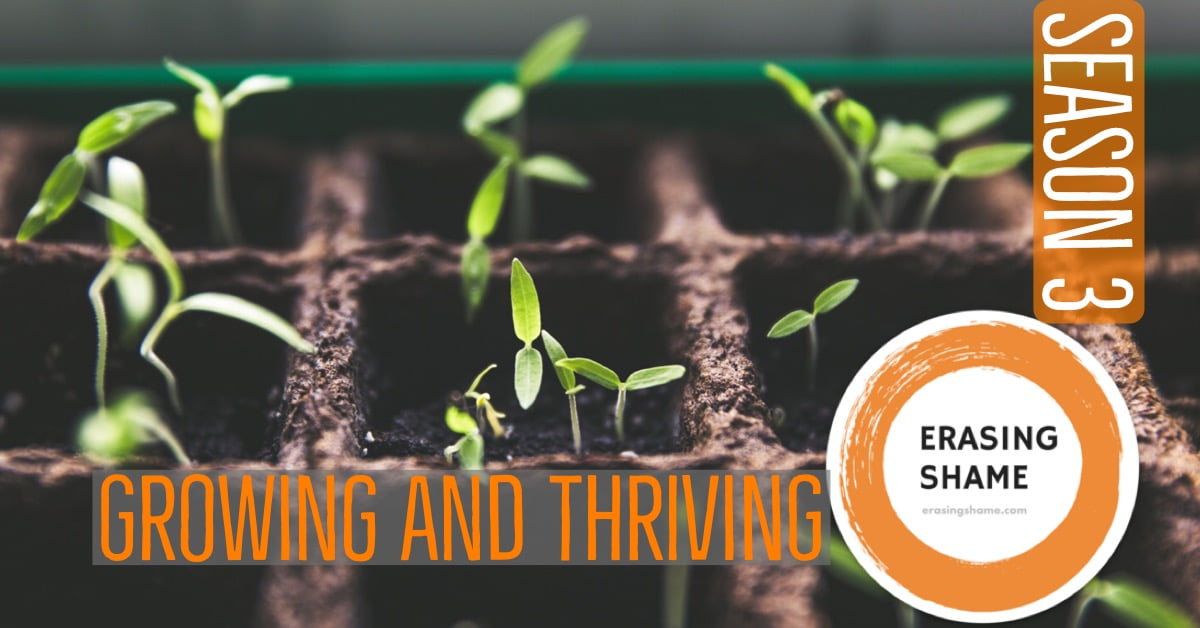Since shame festers in silence, the opposite is that healthy talk will break thru and start erasing shame about mental health and other secrets that make us sick. Hear the back story of why we launched the Erasing Shame podcast, with no budget and no staff at that. Co-Founder DJ Chuang explains how people can […]
Category: Episodes
“When we’re talking about shame—and so much of shame manifests itself in silence and what we don’t say and what we don’t share—to find the courage and bravery within yourself to put these things out there, that you’re having a hard time and you need help… That’s strong, that’s being a strong mom. That’s doing […]
Are you fully embracing your physical & cultural identity? Or are you possibly carrying cultural shame and self-hatred? When you deny a part of your physical/cultural makeup, you are denying the beautiful person you were born to be, both inside and out. Begin to embrace all parts of who you are in order to live […]
Shame is a hefty word. The complexities get greater as you unpack it. To unravel that shame is a lifetime process and that’s when the adventure begins. Irene Cho poignantly opens up about her lived experiences of erasing shame, dealing with her imperfections, discovering her family history, and why immigrant Asian parents are the way […]
What happens when we don’t process our emotions? Pent up emotional toxicity weighs us down in our body, mind and spirit. Emotions are meant to be fully processed and follow a full course of action within our physical body, and then be released outward from our body into productive spaces/activities. When the expression of those natural […]
There’s so much more to shame than just feeling bad or unworthy. Chinese American blogger Fred Mok (a pastor at Garden City Church, San Jose, California) shares poignant insights from Asian and Asian American cultures that reveal other dimensions of shame that are objective, communal, and relational. Show Notes Fred Mok’s blog post— How Asian […]

Season 3 opener with co-hosts DJ Chuang and Nancy Ly, introductions and overview of what’s coming up in this new season of Erasing Shame. Show Notes Facebook Group: Erasing Shame… One Story at a Time Be a part of the movement and share your stories of shame, overcoming and freedom! Your story matters & has the ability to […]
On this episode of “Seen: An Erasing Shame Podcast,” Senior Reporter at the Hollywood Reporter Rebecca Sun joins Eunice Lee to discuss the history of Asian-American representation in the media, the effects of whitewashing, and the triumph of seeing Asian-American representation on screen. “Onscreen representation matters. It gives words or it gives visuals to experiences […]
On this season 2 finale, DJ Chuang shares highlights from the year of 2018, that is, the first 2 seasons of Erasing Shame, plus the special summer series on Erasing Shame about Mental Health in Asian American Communities. This episode wraps up with a Top 10 Countdown of the most popular episodes that you won’t […]
Real feelings don’t always tell the truth. Dave Dicken is a Crisis Counselor at Crisis Text Line and he shares a bunch of very practical tips for how to help yourself or someone you know to have courage, find resilience, and get healing. When the pain is overwhelming, it doesn’t have to be a crisis. […]